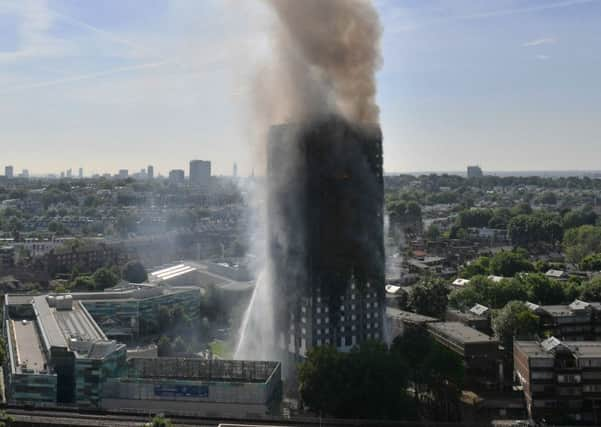David Alexander: Fire safety a key priority in rented sector
This article contains affiliate links. We may earn a small commission on items purchased through this article, but that does not affect our editorial judgement.


Thoughts such as this will mostly apply to those living in tower blocks (Grenfell had 24 storeys) but it is likely that other residents in flatted accommodation with a lower overall height will also be reassessing fire safety options.
• READ MORE: Grenfell Tower Council chief quits
There is little or no comparison between private, commercially-led rentals and the likes of Grenfell Tower, but given the tragic loss of life (not to mention personal possessions) it does seem appropriate to take stock of the safety measures to which private landlords must comply (and their managing agents oversee).
Advertisement
Hide AdAdvertisement
Hide AdWhile most of the publicity concerning improvements to standards in privately-rented accommodation over the past quarter-century have tended to focus on “sexy” items like carpeting, furnishings, furniture, and white goods, serious progress has been made in making homes for rent safer places in which to live.
In Scotland, every privately-let rental property is required to undergo an annual gas safety check by a Corgi-registered tradesman. This is regularly subject to upgrades and amendments intended to further enhance the protection of tenants from any gas-related faults. If a landlord client declined to engage in this process, any reputable letting agent would immediately stop acting for that person.
Every year, all electrical goods in a rented property have to undergo a PIR (periodic inspection report); any items failing the test have to be repaired or replaced. Another requirement for rental properties is to undergo a regular EICR (electric installation condition report) which checks fuse boxes, wiring, etc.
There are further safety requirements, most relating to fire, in properties with an HMO (houses in multiple occupation) licence, which applies to all rental properties accommodating more than two residents who are unrelated (either by blood or marriage). For example, each HMO property must be equipped with doors that close automatically (thus helping contain flames to a single room) while the landlord is also required to provide fire extinguishers and fire blankets. All rooms also must have a smoke detector connected to the main electricity supply rather than rely on the vagaries of battery operation. In addition a sprinkler system is compulsory in all HMO duplex flats (i.e. those on two levels or with a mezzanine floor).
Another requirement of HMO properties is that space in the hallway should not be restricted by sofas or other bulky items that might mean residents losing valuable seconds as they attempt to escape.
• READ MORE: Grenfell victims ‘may take months to recover’
Given the loss of life in horrible circumstances surrounding Grenfell Tower, it is difficult to find any compensation from this tragedy. However, it could lead to existing occupiers of residential property — whether owner-occupier or tenant — taking personal fire safety more seriously, even in the case of those occupying houses or the lower storeys of flatted blocks. It should also lead to those people looking to move house (either as an owner-occupier or tenant) asking pertinent questions about fire-protection measures whereas before they might have concentrated wholly on room sizes, floor-to-ceiling heights and the eye-catching appeal of the fitted kitchen units.
Thanks to current building regulations, refurbished and new-build properties have superior safety standards like never before — e.g. “half-hour” doors designed to contain fire for 30 minutes.
Advertisement
Hide AdAdvertisement
Hide AdI have never heard a developer grumble about the cost of these enhancements because their understandable desire for a profit does not extend to putting people’s safety at risk. A sentiment that is even more widespread after this appalling tragedy, which has surely touched the hearts of us all.
• David Alexander is managing director of DJ Alexander